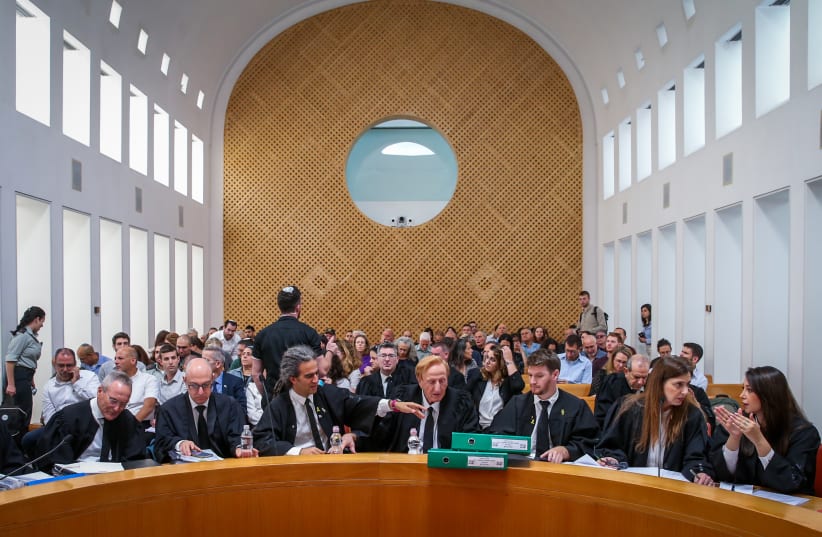ARTICLE AD BOX
How will the government’s proposal politicize the judicial watchdog appointment?
By ELIAV BREUER FEBRUARY 24, 2025 16:13 A court hearing on the government's drafting of yeshiva students for the IDF, at the High Court of Justice in Jerusalem on June 2, 2024
(photo credit: AMIT SHABI/POOL)
A court hearing on the government's drafting of yeshiva students for the IDF, at the High Court of Justice in Jerusalem on June 2, 2024
(photo credit: AMIT SHABI/POOL)
The Knesset Constitution Committee chaired by MK Simcha Rothman (Religious Zionist Party) finished preparing on Monday morning a bill proposal that increases the government’s power over the appointment method of the state watchdog over the judicial system.
The committee will hold a final vote on Tuesday. The bill will then return to the Knesset plenum for its second and third reading and, assuming it passes the plenum vote, will then become law. This could happen within a week.
The watchdog, officially known as the Ombudsman of the Israeli Judiciary, is responsible for hearing complaints against all judges with statutory powers, including criminal courts, transportation courts, family courts, and also judges in religious courts, and can initiate disciplinary proceedings against them. According to current law, the watchdog is appointed based on a joint proposal by the justice minister and the High Court Chief Justice.
The former watchdog, former high court judge Uri Shoham, finished his tenure in May, and Justice Minister Yariv Levin since refused to cooperate with interim chief justice Uzi Fogelman and current chief justice Yizhak Amit to appoint a new one.
Current law requires that the watchdog have a relevant background and deep familiarity with the court system. Although not required by law, all former watchdogs have been retired high-court justices.
Government control over judicial appointment
According to the new proposal, a seven-member committee will appoint the watchdog made up of the justice minister, the labor minister, two judges – one appointed by the high court bench, and the other appointed by the chief justices of Israel’s regional courts; a retired religious judge appointed by the two chief rabbis; the National Public Defender; and a Member of Knesset, whose appointment method is set by the Knesset Speaker.
The new committee de facto gives the government control over the watchdog’s appointment since the two chief rabbis are politically associated with the haredi parties, who are part of the governing coalition. This joins the two ministers and the Member of the Knesset, whose election method is set by the Knesset Speaker, a member of the coalition. The government would thus have at least four votes in the seven-member committee.
With its passing in the committee, the bill proposal now returns to the Knesset plenum for its second and third reading, after which it will become law. This could happen within a week.
Rothman has argued that the high court chief justice should not be involved in the election process since he himself will face oversight by the watchdog. However, MKs from the opposition, representatives from the Attorney General’s Office, and representatives from civil society organizations argued that the bill would politicize the role of the watchdog, who may then use his or her powers to sanction judges based on their political affiliations. It also constituted a “change of the rules while the game is ongoing.”
The opposition members argued that the bill was part of a wider attempt by the government to undermine and weaken the judicial branch’s independence. The government cited a number of complaints against recently elected Chief Justice Yizhak Amit prior to his appointment in January in an attempt to delay or block his appointment. Opposition MKs pointed out that the coalition resumed legislation of the watchdog bill after Amit’s appointment and argued that this indicated that its real purpose was to exact revenge on Amit by taking disciplinary measures against him.

 4 hours ago
5
4 hours ago
5







 English (US) ·
English (US) ·